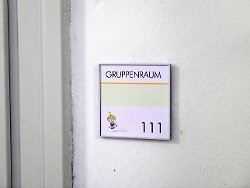Tuesday, July 27, 2021
“Bit strange” development
Berlin checks the increase in special needs students
In Berlin, schools receive additional funds to be able to look after pupils with special needs. This has become more and more common in recent years. A development that does not seem to match the overall number of students. The Senate Department for Education is investigating the case.
In Berlin, the Senate Department for Education is apparently surprised by the continuous increase in students with special needs. The number has risen much more strongly in the past ten years than the total number of students, reports the Berlin “Tagesspiegel”, citing the Senate. The diagnoses for children with intellectual disabilities should therefore be systematically reviewed.
If such a diagnosis is made, schools receive a particularly large amount of additional funding for teachers. The increase “seems a bit strange”, say those responsible in the “Tagesspiegel”, even if they have not seen any “totally invented” diagnoses so far. There should be enough resources for everyone. “We look in which districts the numbers are increasing and whether there is a connection with how the diagnosis was made,” explains the expert in charge of her approach.
In Berlin, diagnoses are made by employees of the “School Psychology and Inclusive Education Advice and Support Centers”, or Sibuz for short, which are available in every district. Since 2011, the number of students in Berlin has risen by 15 percent. The number of so-called GE students who focus on intellectual development increased by 29.3 percent over the same period.
“Parental suffrage is correct”
Education Senator Sandra Scheeres can basically understand the decision of parents of a child with a GE diagnosis for a special support center instead of inclusion lessons in a regular class. “Parents’ voting rights regulated in the School Act are correct,” said the SPD politician to the “Tagesspiegel”. Parents could get information in a Sibuz “and then make a decision that is appropriate for their child and their living situation”.
Scheeres adds: “Parents of children with very severe disabilities in particular often find themselves in situations that are not always easy to understand and assess. An optional option can help.”
.
